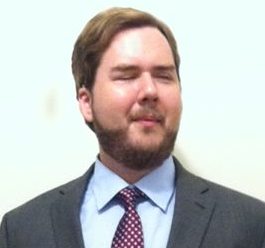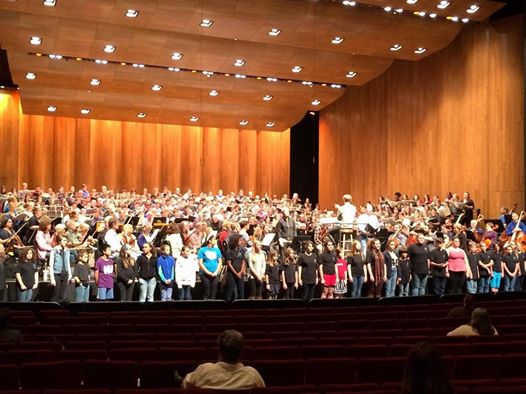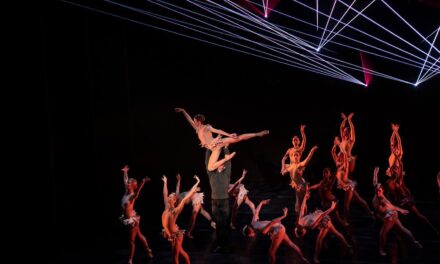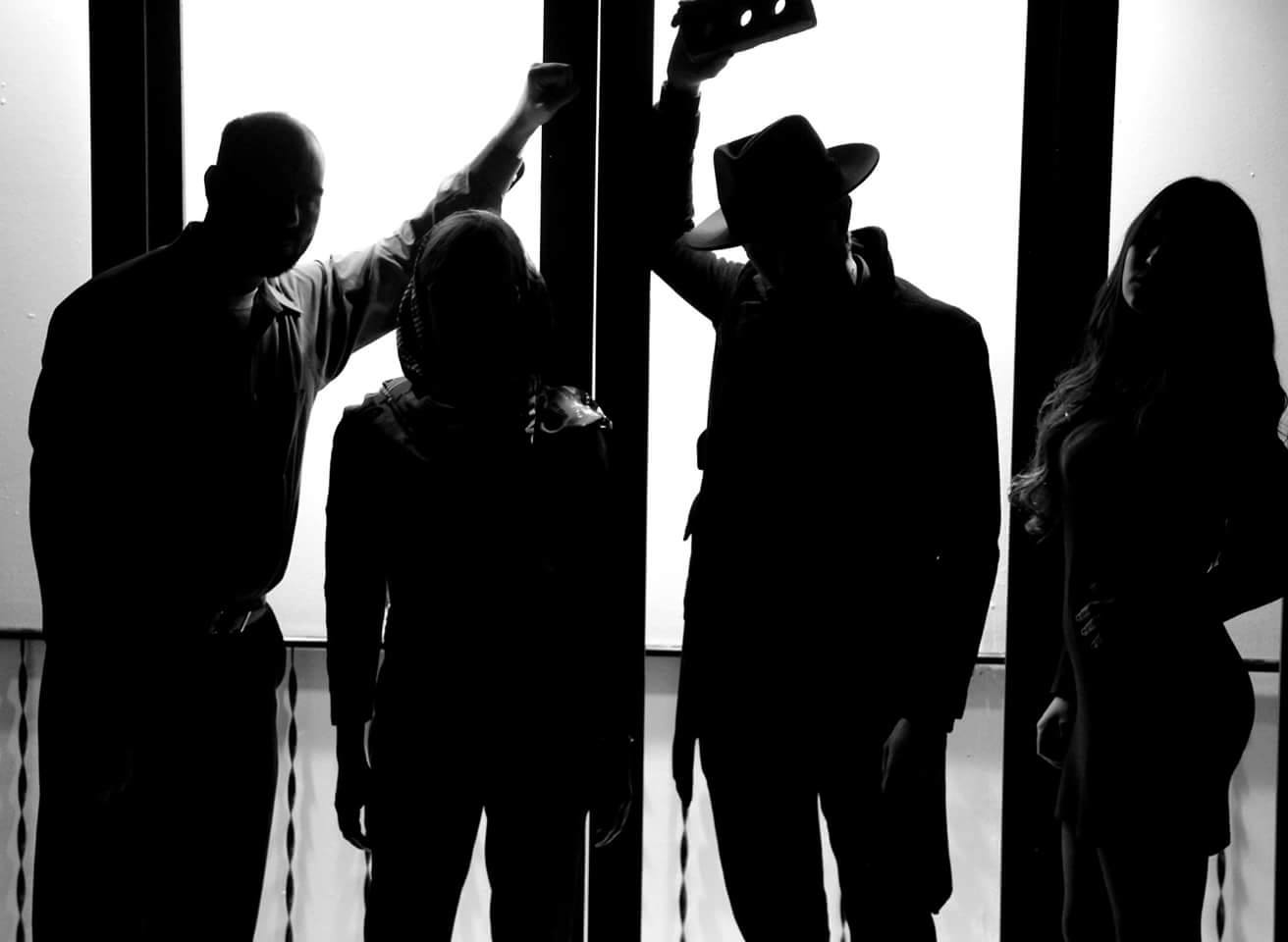Rehearsal for Carmina Burana
Photo: Louisville Orchestra
Carmina Burana
Louisville Orchestra
Teddy Abrams, conductor
Review by Chris Stewart
Entire contents are copyright © 2014 Chris Stewart. All rights reserved
Fall Friday nights in Kentucky elicit images of high school football games, church chili suppers, and hayrides. Even as an avid music fan, “orchestra concert” would not figure prominently in my list of things to do on a Friday night in October. Teddy Abrams and the musicians of the Louisville Orchestra sought to change that by presenting a challenging, diverse, and musically rich program, and they succeeded.
I support the idea of getting unpleasant conversations out of the way early so that we can enjoy the rest of our time reflecting on the enormous amount of great music performed on Friday. The LO featured Kentucky’s own Ben Sollee with fiddler Jeremy Kittle on Kittle’s original composition, “Big Fiddle.” Ben and Jeremy are both extremely talented individuals in unique ways. Jeremy is a fiddle virtuoso, a master of many genres who plays with stunning clarity, richness of tone, and phenomenal right-hand work. Ben is certainly a technically accomplished cellist, and any fan of his knows that his personal style is marked by his ability to use the cello as an accompaniment for his voice, often using chops and pizzicato techniques to create a unique sound scape for his original songs.
Having recognized the undeniable talents of both men, I am comfortable saying that Kittle’s piece slightly missed the mark. While Teddy Abrams literally stomped his foot in time during parts of the piece, no one around me seemed eager to join him. Kittle and Sollee functioned more as leaders in an orchestral call and response than as featured soloists. Perhaps this was the endgame, but for fans of both musicians, the absence of the musical techniques which make each instrumentalist a unique soloist left me wanting more.
Okay, that wasn’t so bad, was it? Now, let’s turn our attention to an orchestra whose excitement and passion are evident from every corner of the concert hall. The LO began the evening with Charles Ives’ Unanswered Question. As a side note, Charles Ives was famous for his musical eccentricities. He enjoyed going to carnivals and standing in the midst of several bands, taking in their separate songs and hearing the resultant aleatory as a distinct piece.
Heady and beautiful, Unanswered Question is a pleasant challenge to listeners featuring three distinct voices. First, the strings begin the piece with a sustained chord, played completely off stage. Second, a lone trumpet sings a melody from the balcony. Finally, a selection of woodwinds answer in a slightly chaotic response. After the piece, Abrams explained that the strings represent the immutable universe, the backdrop of existence. The trumpet represents man’s cry for answers, our insatiable desire to know more and, more to the point, to understand why. The woodwinds offer the best answer Ives could think of. No matter how many times nor how plaintively we ask, the universe simply exists, offering beauty in its ordered chaos, but nothing so succinct as a clear answer.
The rest of the first half featured more uniquely beautiful music. Dr. Kent Hatteberg led a choral piece by Thomas Tallis, Spem in Alium. I have rarely heard anyone who gets more from a group of singers than Dr. Hatteberg, and Friday continued that trend. Tallis’ work featured forty parts. Not forty singers, but forty distinct parts washed over the audience. Religious subject matter has long inspired composers, but only a few made me feel as though I could see the composer’s devotion to God. Spem in Alium accomplishes this. Thomas Tallis musically encapsulated and emphasized the insignificance of man in relation to the glory of God. The Latin translates to:
I have never put my hope in any other
but in You, O God of Israel
who can show both anger and graciousness,
and who absolves all the sins
of suffering man
Lord God,
Creator of Heaven and Earth
be mindful of our lowliness
Soprano Celena Shafer was stunning in her rendition of Mozart’s “Laudate Dominum” from Vesperae solennes de confessore. And, Caroline Shaw’s “Oculi Mei” left no concertgoer unmoved. As a longtime symphony goer, I am frequently disappointed at the paucity of female composers on the program, but, by programming Shaw, Teddy Abrams demonstrated simultaneously his commitment to quality music as well as to diversity and inclusion.
After an intermission marked by palpable anticipation, it was at last time for Carmina Burana. With Carl Orff’s masterpiece, the rules are essentially go big or go home. I’ve seen Carmina Burana in three cities, including one performance by the Los Angeles Philharmonic, and Teddy Abrams went bigger than any of them. Singers from nine choirs somehow occupied the stage in addition to the full orchestra. Most excitingly, however, is that five local high schools had representation on stage. These young musicians not only contributed their voices to an incredible performance, but the benefits they received cannot be overstated. Dr. Hatteberg was their choirmaster. They experienced singing with a professional orchestra. They got to network with and learn from more experience vocal professionals from around Louisville. They learned how to read complex, mixed-meter music. They sang on stage with the incredible soloists Celena Shafer, Javier Abreu, and Hugh Russell. Finally, they had the opportunity to perform before a capacity crowd in one of Louisville’s top venues.
Teddy’s decision to make use of young talent is further evidence that Louisville’s new conductor “gets it.” Abrams knows what it means to conduct in the twenty-first century, and his decisions show that the statements made in his debut performance weren’t hollow words, but a sincere commitment. I noticed recently that the LO has been performing concerts around the community. In my last review, I expressed my hope that Teddy Abrams would be the conductor of the community, not just the concert hall. Bringing the orchestra to the people and relying on young talent to fill out his choir offer incontrovertible proof that Abrams is leading the LO into the next great leg of its journey.
To conclude, I would like to remind everyone how fortunate we are to have an exciting and vibrant orchestra in Louisville. As the lockout of the musicians of the Atlanta Symphony Orchestra continues, we are reminded that with great art comes great commitment by patrons. I am proud of you, my fellow Louisvillians, for standing up and doing what is necessary to insure that this essential institution, this heartbeat of our community, this Louisville Orchestra has the resources to continue bringing us the music we love and need. Keep Louisville orchestral!
Carmina Burana
October 17, 2014
Louisville Orchestra
Whitney Hall, Kentucky Center
501 West Main Street
Louisville, KY 40202
502-584-7777
Louisvilleorchestra.org
[box_light] Chris K. Stewart is a Kentucky native who graduated with a music performance degree from the California Institute for the Arts. He worked in Southern California as a professional violinist before deciding to move home and marry his best friend. Now, he is a law student at UK but can still be seen playing fiddle around the Louisville area. He began writing for Arts-Louisville in 2013 and finds writing about music a welcome break from legal scholarship. Follow him on twitter at @KyBlindJustice.[/box_light]
Chris K. Stewart is a Kentucky native who graduated with a music performance degree from the California Institute for the Arts. He worked in Southern California as a professional violinist before deciding to move home and marry his best friend. Now, he is a law student at UK but can still be seen playing fiddle around the Louisville area. He began writing for Arts-Louisville in 2013 and finds writing about music a welcome break from legal scholarship. Follow him on twitter at @KyBlindJustice.[/box_light]




